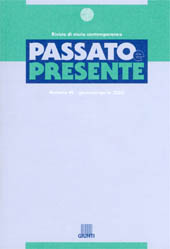"New Public Management", liberalizzazione dei curricula e insegnamento della storia in Svezia
45-71 p.
Since the post-war period, in the international debate, Sweden has been regarded as a model of emancipatory educational policies, centred on equal access to schooling. However, since the end of the 1980s, in coincidence with the end of the political hegemony of social democracy, that system underwent a process of liberalisation and deregulation that has made it an international model of a decentralised schooling system, entirely open to competition and to marked-oriented vision of knowledge. The article questions the impact of this exposure to neoliberal values on the canon of history teaching. The canon has been subject to contradictory tensions influenced by a set of factors: the fragmentation of courses and curricula, a utilitarian approach to education and the perceived precariousness of history teachers' professional identity. The resulting situation of crisis has led to rehabilitation of a canonical vision, evident since 2011.[Publisher's text]
-
Articoli dello stesso fascicolo (disponibili singolarmente)
-
Informazioni
Codice DOI: 10.3280/PASS2024-123005
ISSN: 1972-5493
MATERIE
PAROLE CHIAVE
- educational reform, teaching history, Swedish model, collective memory ;.


